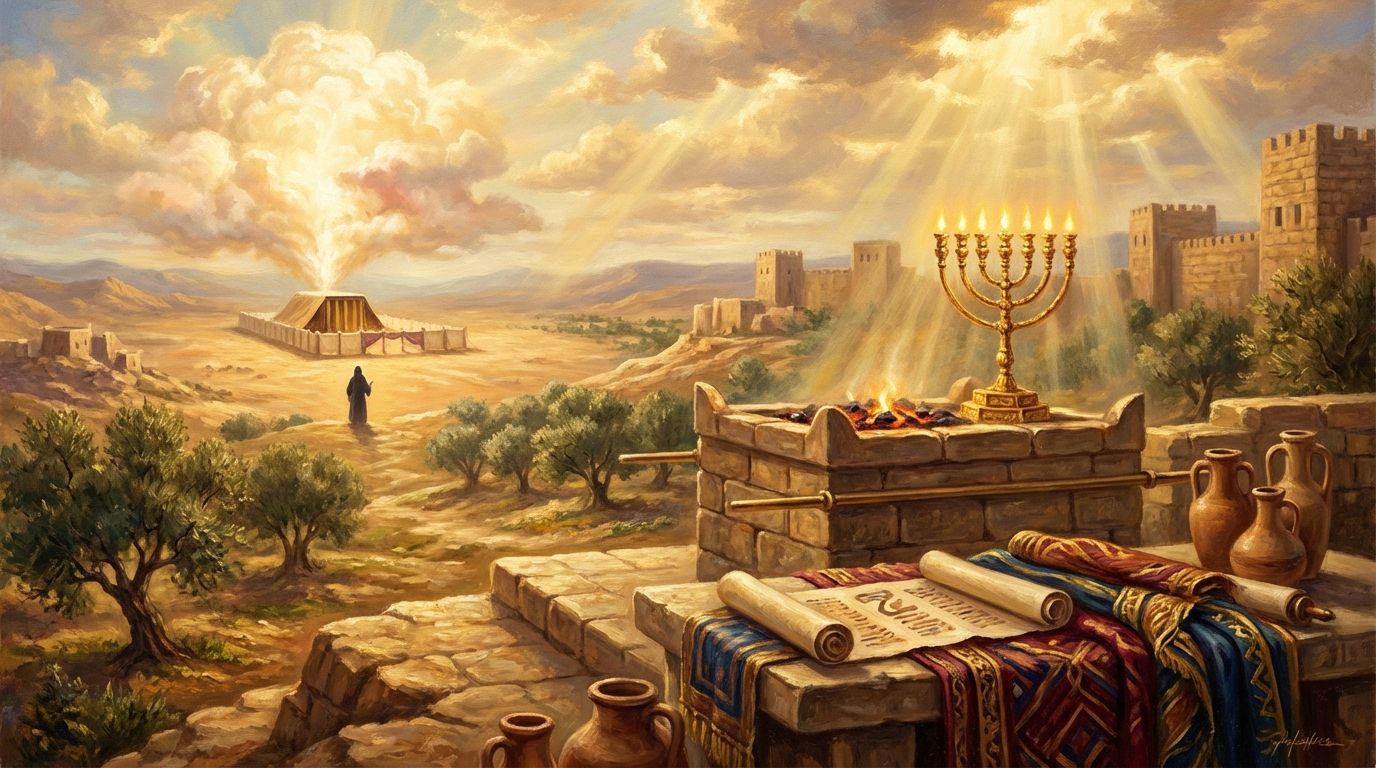"The righteous will flourish like the date palm..." (Tehillim 92:13)
Tomer Devorah [Palm Tree of Devorah] - an ethical treatise devoted to a Kabbalistic understanding of the commandment to imitate G-d based on the Torah verse "...you shall go in His ways" (Devarim 28:9) and "to go in all His ways" (11:22).
The Sifri ("Eikev") explains: just as the Holy One, Blessed Be He, is called 'Compassionate,' you should be compassionate; just as the Holy One, Blessed Be He, is called 'Gracious,' you should be gracious; just as the Holy One, Blessed Be He, is called 'Righteous,' you should be righteous; just as the Holy One, Blessed Be He, is called 'Pious,' you should be pious."
Expounding the verse "Follow HaShem, your G-d..." (Devarim 13:5), the Gemara derives the practical implications of this concept: "Emulate the attributes of the Holy One, Blessed Be He. Just as the Holy One, Blessed Be He, clothes the naked...so should you; just as the Holy One, Blessed Be He, visits the sick..so should you; just as the Holy One, Blessed Be He, consoles the bereaved, so should you..." (Sotah 14a)
In Tomer Devorah, the Thirteen Supernal Attributes of Mercy mentioned in Michah 7:18-20 are analyzed in detail.
The following are the words of the holy Sanzer Rebbi, the Divrei Chaim זצ"ל, as heard by his grandson, Rav Moshe Halberstam זצ"ל from the Satmar Rebbi זצ"ל:
“…the learning from the Sefer Tomer Devorah is a segulah against the terrible sickness…”
It is recommended to learn from the sefer Tomer Devorah once a week or at least once a month, even though this sefer is not easy to understand. This segulah follows the principle of middah keneged middah (measure for measure). If we emulate G-d’s Attributes and act like He does with patience, compassion, forgiveness, etc, HaShem will act towards us in the manner of middah keneged middah and be patient, compassionate and forgiving with us.
To be privileged to channel G-d's blessing and benefit into the world, man must emulate his Creator. It is insufficient that man is created in the Divine likeness - he must constantly, consciously, and willingly cleave to G-d by emulating Him in every way.
"Who is G-d like You, Who pardons iniquity and forgives the transgression of the remnant of His heritage? He does not maintain His anger forever, for He delights in kindness. He will again show us compassion, He will vanquish our iniquities, and You will cast all their sins into the depths of the sea. Show faithfulness to Yaakov, kindness to Avraham, which You have sworn to our fathers from days of old" (Michah 7:18-20)
Consequently, it is proper that these Thirteen Attributes should also be found in man.
Hitbodedut: "HaShem, I realize that I have no separate existence from you and therefore I yearn to be more like You. Please help me to rise above my nature and lead me in the path that I wish to go, which is to think, say and do only what is pleasing to You. May I merit to bring love and mercy to my interactions."
Who is G-d like You
This Attribute refers to the Holy One, Blessed is He, as a tolerant King Who bears insult in a manner beyond human understanding. Nothing is hidden from His view and there is not a moment that man is not nourished and sustained by virtue of the Divine power bestowed upon him.
Therefore, no man ever sins against G-d without G-d, at that very moment, bestowing abundant vitality upon him, giving him the power to move his limbs. Yet even though a person uses this very vitality to transgress, G-d does not withhold it from him. Rather, the Holy One, Blessed is He, suffers this insult and continues to enable his limbs to move. Even at the very moment that a person uses that power for transgression, sin, and infuriating deeds, the Holy One, Blessed is He, bears them patiently. He does not withhold His goodness from man. He bears the insult and continues to bestow His power and benevolence on man. Such an insult and the forbearance thereof defy description.
The ministering angels refer to the Holy One, Blessed is He, as the long-suffering King.
"Who is G-d like You" - You, G-d, are kind and benevolent, possessing the power to exact revenge and claim what is rightfully Yours, and yet You are patient and tolerant until man repents.
This is a virtue man should emulate - tolerance. Even when he is insulted to the degree mentioned above he should not withdraw his benevolence from those upon whom he bestows it.
Hitbodedut: "HaShem, please help me to rise above my natural reaction of what I would say or do and lead me in the path that I wish to go, which is to bring love and mercy to this matter. Please lead me in a way that will reflect tolerance, love, mercy and light."
*Hitbodedut = personal prayer




















